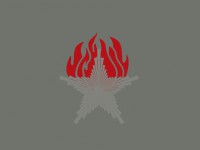Dossier: The JNA in the Wars in Croatia and BiH / Obljetnica pada i žrtve Vukovara

On the occasion of the 27th anniversary of the fall of Vukovar, Documenta – Centre for Dealing with the Past Zagreb, Humanitarian Law Centre Belgrade, Youth Initiative for Human Rights – Croatia and Faculty of Law at the University of Zagreb are organising the presentation of:
Dossier: The JNA in the Wars in Croatia and BiH – The role of the Yugoslav People’s Army (JNA) in the wars in Croatia and Bosnia and Herzegovina (BiH) and its transformation from the Yugoslav into the Serbian Army
The presentation will take place on Friday, November 16, 2018 at 12 PM in the Great Hall of the University of Zagreb (14 Republic of Croatia Square, Zagreb).
Speaking at the presentation will be Ivana Žanić, Dossier editor and head of the legal team at the Humanitarian Law Centre Belgrade (HLC), Jovana Kolarić, Dossier author, Humanitarian Law Centre Belgrade, Nemanja Stjepanović, journalist and activist (Dossier supervisor), Vesna Teršelič, director of Documenta – Centre for Dealing with the Past and Ivo Josipović, Croatian President 2010 – 2015.
The presentation will be moderated by Eugen Jakovčić, Documenta – Centre for Dealing with the Past.
This is the most extensive of the HLC Dossiers so far, covering the period from the end of the 1980s up to May 1992. It explores how the JNA and the political leadership of the Socialist Federative Republic of Yugoslavia (SFRY) and Serbia prepared for the wars, the JNA’s involvement in the conflicts, and its contribution to achieving the wartime goals of Serbia, the Republic of Serbian Krajina and Republika Srpska.
The introductory section of the Dossier presents facts about the development of the crisis in the former Yugoslavia and the steps undertaken by the leadership of the Republic of Serbia, headed by Slobodan Milošević, to take control of the JNA, with a view to using it for achieving their own wartime goals. After that, the Dossier presents the role of the JNA in the war in Croatia and in BiH.
In each of the examples given of JNA’s military involvement in Croatia and BiH, the pattern of attacks is described and the JNA units that took part in them are listed. Also, evidence on the identity of the perpetrators of crimes committed during the attacks, whether they were JNA members or members of Serb formations who participated in the actions alongside the JNA, is presented.
The Dossier also presents evidence on JNA’s role in arming Serb formations in Croatia and BiH in the lead-up to the conflicts, and on the assistance and support it provided to Serb militaries in Croatia and BiH after having formally withdrawn from these republics.
Some of the examples given, which are substantiated by military documents, make clear that after a decision was issued on JNA’s formal withdrawal from BiH in May 1992, its units that remained behind in BiH were simply renamed and became units of the Army of Republika Srpska (VRS). The VRS retained the command structure of the JNA and its manpower, and took possession of its weaponry. This gave the newly established army of Bosnian Serbs a head start over all other armed formations in BiH.
Documenta – Centre for Dealing with the Past
Youth Initiative for Human Rights – Croatia



